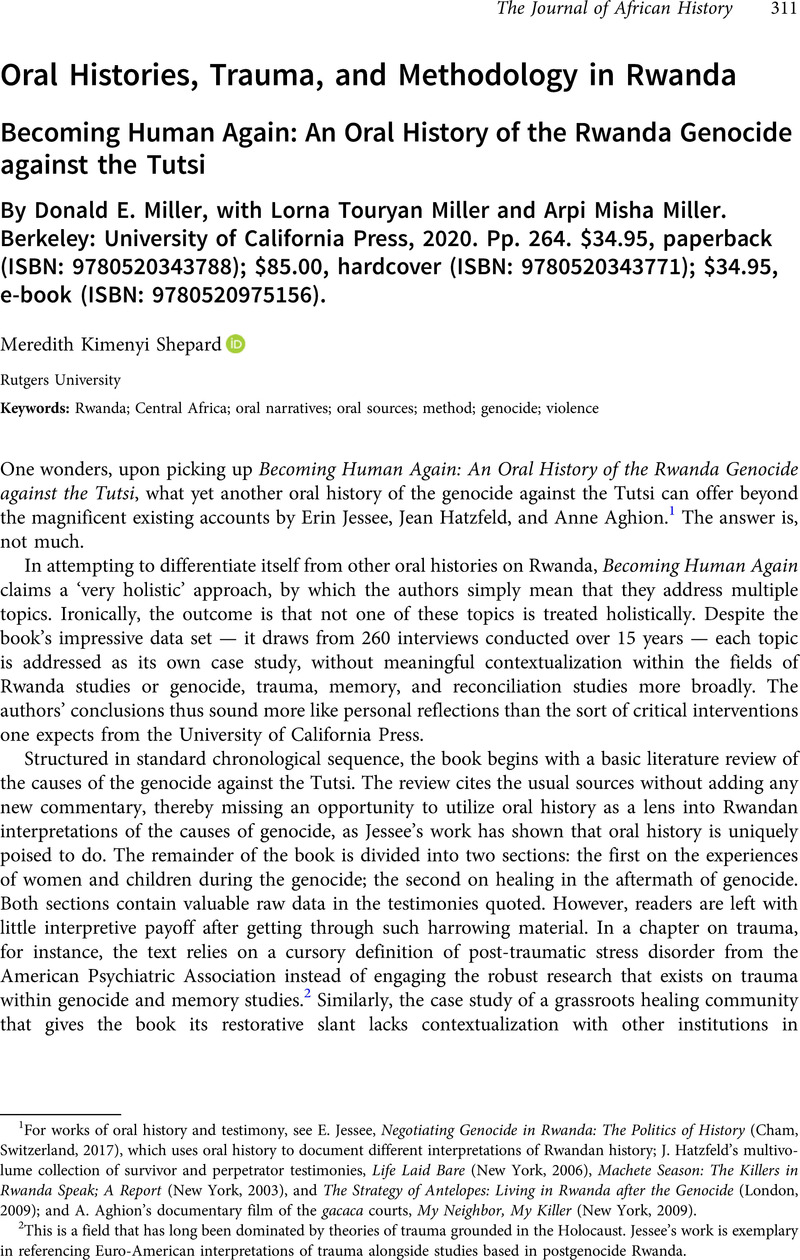No CrossRef data available.
Article contents
Oral Histories, Trauma, and Methodology in Rwanda - Becoming Human Again: An Oral History of the Rwanda Genocide against the Tutsi By Donald E. Miller, with Lorna Touryan Miller and Arpi Misha Miller. Berkeley: University of California Press, 2020. Pp. 264. $34.95, paperback (ISBN: 9780520343788); $85.00, hardcover (ISBN: 9780520343771); $34.95, e-book (ISBN: 9780520975156).
Review products
Published online by Cambridge University Press: 30 July 2021
Abstract

- Type
- Review of Books
- Information
- Copyright
- Copyright © The Author(s), 2021. Published by Cambridge University Press
References
1 For works of oral history and testimony, see Jessee, E., Negotiating Genocide in Rwanda: The Politics of History (Cham, Switzerland, 2017)CrossRefGoogle Scholar, which uses oral history to document different interpretations of Rwandan history; J. Hatzfeld's multivolume collection of survivor and perpetrator testimonies, Life Laid Bare (New York, 2006), Machete Season: The Killers in Rwanda Speak; A Report (New York, 2003), and The Strategy of Antelopes: Living in Rwanda after the Genocide (London, 2009); and A. Aghion's documentary film of the gacaca courts, My Neighbor, My Killer (New York, 2009).
2 This is a field that has long been dominated by theories of trauma grounded in the Holocaust. Jessee's work is exemplary in referencing Euro-American interpretations of trauma alongside studies based in postgenocide Rwanda.
3 An excellent source for debates on recovery in postgenocide Rwanda is Straus, S. and Waldorf, L. (eds.), Remaking Rwanda: State Building and Human Rights after Mass Violence (Madison, 2014)Google Scholar.
4 Hartman, S., Lose Your Mother: A Journey along the Atlantic Slave Route (New York, 2006)Google Scholar.
5 See Aghion, My Neighbor, My Killer; and Hatzfeld, Life Laid Bare, Machete Season, and Strategy of Antelopes.





